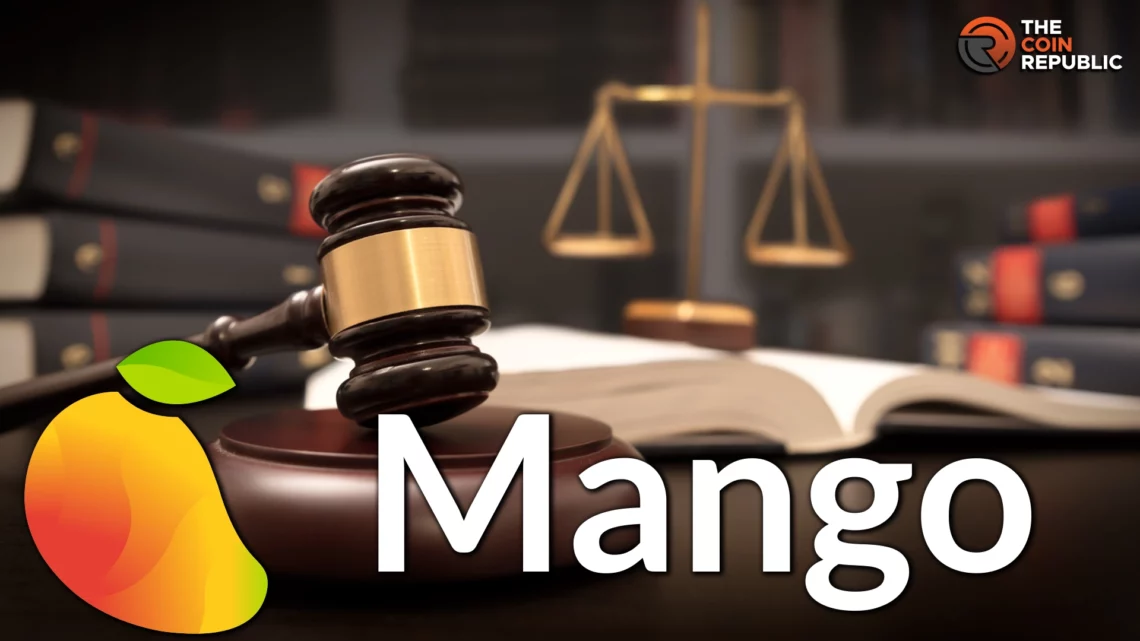A federal jury in Manhattan found Avraham Eisenberg guilty of fraud and market manipulation charges. This verdict is related to the $110 Million Mango Markets exploit, which could potentially impact the DeFi industry.
The ruling marks a significant milestone in holding bad actors accountable within the rapidly evolving DeFi ecosystem.
Eisenberg, a 27-year-old crypto trader, orchestrated a sophisticated scheme in October 2022 to artificially inflate the price of Mango Markets’ native MNGO token and related contracts.
By exploiting a flaw in the platform’s price oracle, Eisenberg deceived the system and withdrew a staggering $110 Million in cryptocurrency with no initial plans to repay the funds.
The Prosecution’s Case: Meticulously Planned Fraud
Throughout the trial, prosecutors described a meticulously planned fraud, asserting that Eisenberg used a false identity and manipulated the market to deceive the system and gain illegal profits.
Assistant U.S. Attorney Thomas Burnett sought to convince the jury that Eisenberg’s actions were a deliberate attempt to “take the money and run,” meticulously planned and executed.
The prosecution strengthened its case by introducing evidence of Eisenberg’s internet search history, which included queries about market manipulation and fraud.
Additionally, his attempted escape to Israel after the exploit was presented as further evidence of his purported intention to avoid responsibility.

The Defense’s Stance: A Legal Trading Strategy
Eisenberg’s defense team, led by prominent crypto lawyer Brian Klein, argued that his client’s trades on Mango Markets were lawful and compliant with the decentralized protocol’s rules at the time.
They claimed that Eisenberg’s actions constituted a “successful and legal trading strategy” and that the funds were acquired through legitimate means, fully aligned with the protocol’s functionalities.
The prosecution, however, refuted these arguments, stating that Eisenberg had malicious intent from the start. They argued that his actions constituted fraud and manipulation, regardless of the supposed legality of his trades.
The Verdict and Its Implications
Following several hours of discussion, the jury found Eisenberg guilty of all charges related to wire fraud, commodities fraud, and commodities manipulation. The conviction establishes an important precedent for holding people responsible for abusing DeFi protocol weaknesses, even in situations when the conduct would have been allowed by the protocol’s guidelines.
Eisenberg is now staring at a possible 20 years in prison, with sentencing scheduled for July 29.
The ruling also creates a potential opportunity for civil actions brought by the U.S. Securities and Exchange Commission (SEC) and the Commodity Futures Trading Commission (CFTC).
Eisenberg was the subject of 2023 filings from both agencies; however, these lawsuits were placed on hold while the criminal trial was ongoing.
The Mango Markets Aftermath
Following the Mango Markets exploit, Eisenberg anonymously proposed to the platform’s decentralized autonomous organization (DAO), suggesting a return of $67 Million of the stolen funds.
In return, he requested permission to retain the remaining $43 Million and sought assurance of no legal consequences. However, the Mango Markets DAO rejected the proposal, leading to Eisenberg’s eventual arrest and prosecution.
After Eisenberg’s conviction, the MNGO token, which is the main cryptocurrency of Mango Markets, rose by more than 11% in just 24 hours. This could show that the market sees more accountability and trust in DeFi now.
Conclusion
The guilty verdict against Avraham Eisenberg in the Mango Markets exploit case represents a watershed moment for the DeFi industry. It sets a precedent for holding bad actors accountable, even in decentralized protocols. It sends a strong message that exploiting vulnerabilities for personal gain will not be tolerated.
This verdict shows the need for strong security, good governance, and clear rules in DeFi. It’s crucial to keep these financial systems trustworthy. The decision will affect the crypto world, but it’s also a chance to make DeFi more transparent and reliable. This could lead to more people using and trusting these systems in the future.

Nancy J. Allen is a crypto enthusiast, with a major in macroeconomics and minor in business statistics. She believes that cryptocurrencies inspire people to be their own banks, and step aside from traditional monetary exchange systems. She is also intrigued by blockchain technology and its functioning. She frequently researches, and posts content on the top altcoins, their theoretical working principles and technical price predictions.


 Home
Home News
News






